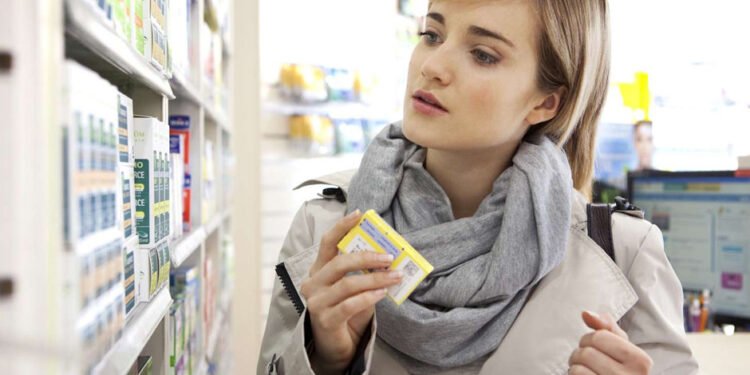Over-the-counter (OTC) drugs play a crucial role in healthcare by providing easy access to medications for minor ailments without the need for a prescription. These drugs are widely available and can be purchased in various locations. However, there are specific regulations and guidelines governing who can sell OTC drugs in the UK. Understanding these regulations ensures that consumers receive safe and effective products while maintaining public health standards.
Understanding OTC Drugs
OTC drugs are medications that can be bought without a prescription. They are deemed safe for self-diagnosis and self-treatment of minor health issues when used as directed. Common examples include pain relievers, cough and cold medicines, and allergy treatments like Piriton 500.
Dr. Sarah Williams, a pharmacist based in London, explains, “OTC drugs provide an essential service by allowing individuals to manage minor health issues independently. However, it’s important that these medications are sold through authorized channels to ensure their safety and efficacy.”
Regulatory Framework for Selling OTC Drugs
In the UK, the sale of OTC drugs is regulated by the Medicines and Healthcare products Regulatory Agency (MHRA). The MHRA ensures that all medications sold to the public meet stringent safety, quality, and efficacy standards. OTC drugs are categorized based on their risk levels and the level of supervision required.
Types of OTC Drugs
OTC drugs in the UK are classified into three main categories:
General Sales List (GSL)
GSL medicines can be sold without the supervision of a pharmacist. They are considered safe for general sale and can be found in a wide range of retail outlets, including supermarkets, convenience stores, and online platforms like Welzo.
Pharmacy Medicines (P)
Pharmacy medicines can only be sold in registered pharmacies under the supervision of a pharmacist. These medications require professional advice to ensure their appropriate use. An example includes products like buy Voltarol, which is used for pain relief and may need guidance on proper application.
Prescription-Only Medicines (POM)
While not classified as OTC, it’s important to note that POMs can only be dispensed with a valid prescription from a healthcare professional. These drugs are not available for self-medication and are strictly regulated.
Who Can Sell OTC Drugs?
The ability to sell OTC drugs in the UK depends on the classification of the medication and the type of retailer.
Supermarkets and General Retail Outlets
Supermarkets and general retail outlets can sell GSL medications. These are commonly found on shelves and are accessible to the public without any professional supervision. Examples include pain relievers, antacids, and simple cold remedies.
Dr. Emily Carter, a healthcare policy expert, notes, “The availability of GSL medications in supermarkets and convenience stores increases accessibility for consumers. However, it’s crucial that these outlets adhere to regulations to prevent misuse.”
Pharmacies
Pharmacies are authorized to sell both GSL and P medicines. A registered pharmacist must be present to supervise the sale of P medicines, providing professional advice to ensure proper usage. Pharmacies also handle the sale of POMs, which require a prescription.
“The role of pharmacists in managing OTC drug sales is vital. They ensure that patients receive the right medication and understand how to use it safely,” says Dr. John Smith, a senior pharmacist.
Online Retailers
Online retailers like Welzo have become increasingly popular for purchasing OTC drugs. These platforms offer convenience and privacy for consumers, allowing them to order medications from the comfort of their homes. Online pharmacies must be registered with the General Pharmaceutical Council (GPhC) and comply with MHRA regulations.
Dr. Rachel Adams, a digital health specialist, explains, “Online pharmacies provide a valuable service, especially for those who may have difficulty accessing physical stores. However, it’s important to ensure that these platforms are properly regulated to maintain safety standards.”
Ensuring Safety and Compliance
The sale of OTC drugs in the UK is governed by strict regulations to ensure consumer safety. Retailers must adhere to several key requirements:
Proper Licensing
All outlets selling OTC drugs must be properly licensed. Pharmacies need to be registered with the GPhC, and online pharmacies must display their registration details prominently on their websites.
Qualified Staff
A qualified pharmacist must be available for P medicines to provide advice and supervise sales. This ensures that consumers receive the necessary guidance to use the medication safely and effectively.
Adherence to Legal Age Restrictions
Some OTC drugs have age restrictions. Retailers must verify the age of the purchaser to comply with these regulations. For example, certain cough and cold medications are not recommended for young children.
Accurate Labelling and Information
OTC drugs must be clearly labeled with dosage instructions, potential side effects, and storage information. Retailers are responsible for ensuring that consumers have access to this information.
Expert Opinions and Statistics
According to a report by the Proprietary Association of Great Britain (PAGB), the UK’s OTC market is valued at approximately £2.6 billion annually. This reflects the high demand for accessible healthcare solutions.
Dr. Andrew Black, a healthcare economist, states, “The OTC market plays a significant role in reducing the burden on healthcare systems. By enabling self-care for minor ailments, we can free up resources for more serious health concerns.”
Challenges and Considerations
While the availability of OTC drugs offers numerous benefits, there are also challenges to consider:
Risk of Misuse
Without professional guidance, there is a risk that consumers may misuse OTC drugs, leading to potential health issues. It’s essential for retailers to provide clear instructions and for consumers to follow them diligently.
Counterfeit Medications
The rise of online pharmacies has also led to concerns about counterfeit medications. Consumers must ensure they are purchasing from reputable sources to avoid harmful products.
Dr. Emily Parker, a public health advocate, warns, “Counterfeit medications are a serious threat to public health. Consumers should always verify the legitimacy of online pharmacies before making a purchase.”
Conclusion: Navigating the OTC Drug Market
The sale of OTC drugs in the UK is a well-regulated process designed to ensure consumer safety and access to essential medications. Supermarkets, pharmacies, and online retailers like Welzo play a crucial role in providing these products. By adhering to regulations and promoting responsible use, these outlets help individuals manage their health effectively.
For consumers, understanding where and how to purchase OTC drugs safely is paramount. Consulting with pharmacists, verifying online retailers, and adhering to dosage instructions are key steps in ensuring safe and effective self-care. As Dr. Sarah Williams aptly puts it, “Empowering patients with the right knowledge and resources is the cornerstone of a healthy society.”












